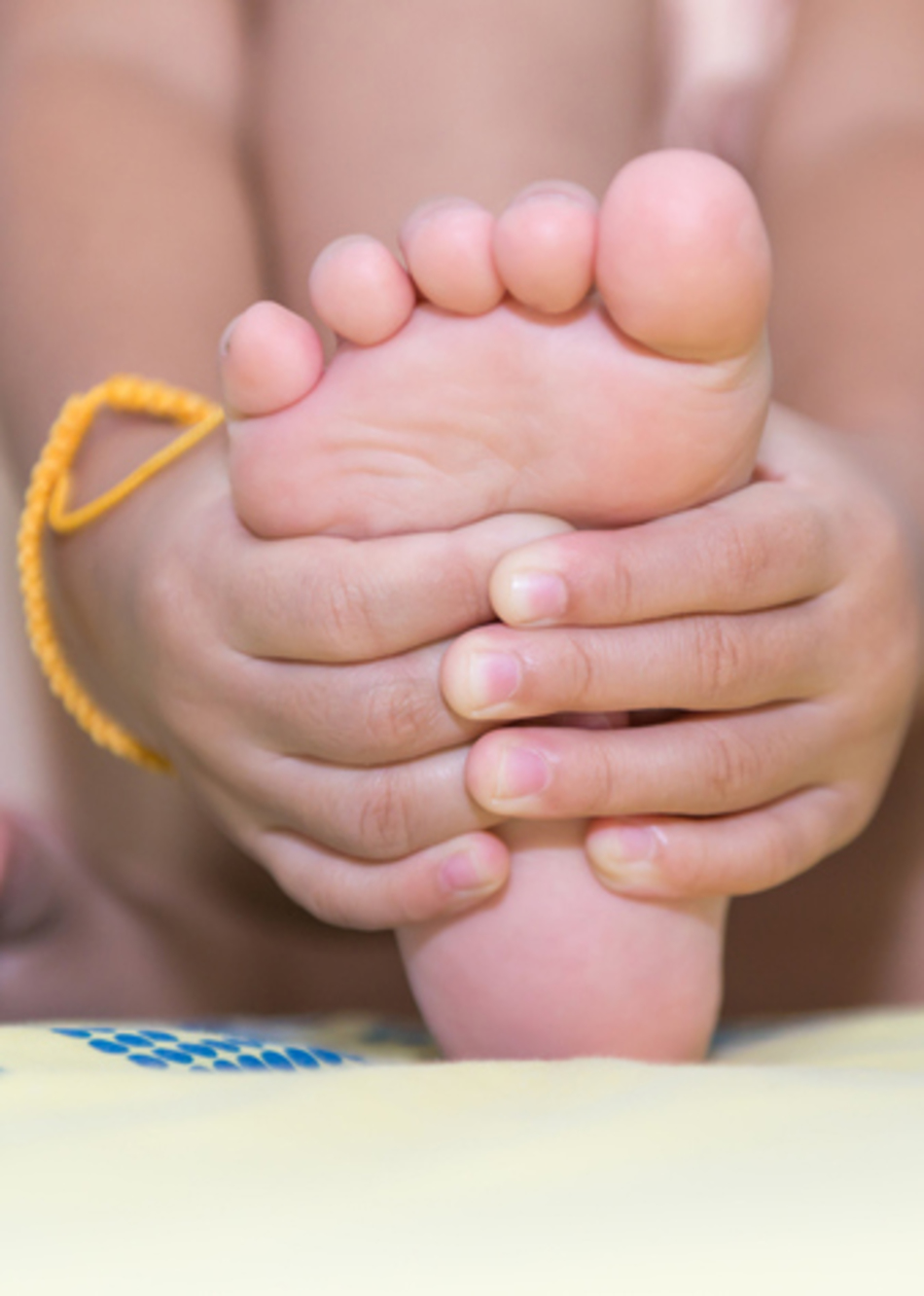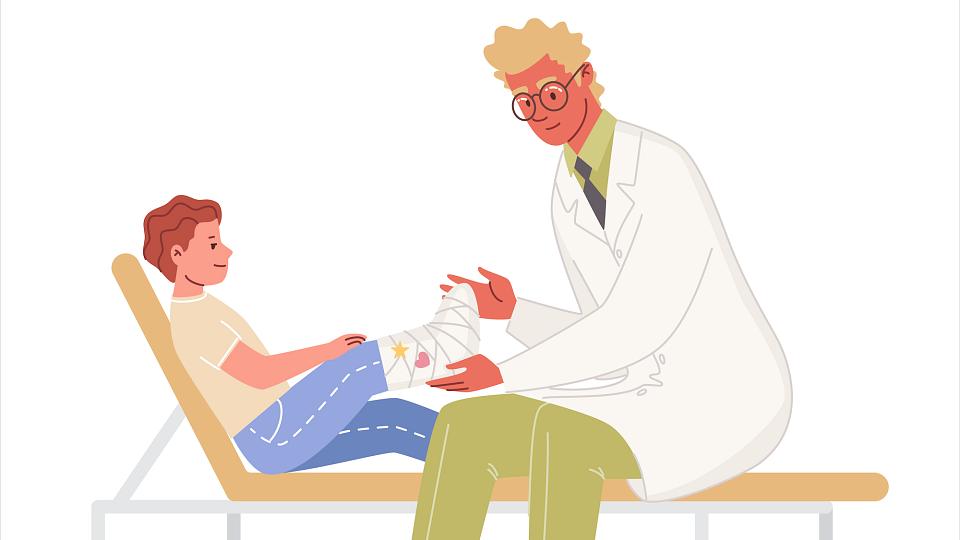
Many kids, especially athletes, will complain that their feet hurt at some time. Heel pain is especially common and especially during growth spurts.
Heel Pain in Young Athletes
Heel pain in athletes who are growing actually has a name. It's called calcaneal apophysitis, otherwise known as Sever's disease. It is most common between the ages of 9 and 14 and is seen in athletes who do a lot of running and jumping. My teenage soccer player has this and actually so do several of his teammates, or the teammates of my younger son who will probably end up having this also. Basically, what it is, is inflammation of the growth plate of the heel bone. The bones, muscles, and tendons in that area all grow at different rates during puberty. And when they're out of sync, the muscles and tendons pull too hard on the growth plate and that causes the inflammation.
How to Care for Heel Pain
So what can your child do to help once the pain has started? Well, to be honest, the pain will improve most once your child is done with their growth spurt. Also, it's best to stop any activities that cause pain. But, of course, we know that's not going to happen, especially if your child is on a competitive or a school athletic team.
Ice & Ibuprofen
So other things that help include having an ice pack in a towel and icing the heel for 15 minutes every one to two hours during flare-ups. Have your child take an anti-inflammatory pain medicine, like ibuprofen or naproxen. But be sure to check with your child's pediatrician on dosing. Gel heel cups and shoes with good support are also helpful. They help put less pressure and less stress on the heel. Your child's pediatrician can also give you exercises that can help with stretching and which can help with the pain and help keep the condition from getting too bad.
If the pain continues, your child may be referred to a physical therapist. And if all else fails, then your child will be put into a walking boot and referred to an orthopedic specialist for management of severe cases. Eventually, Sever's disease gets better, but not really until your child has stopped growing and that growth plate closes. Until then, manage the pain and follow the advice your child's doctor gives them.
Learn More About Pediatric Sports Medicine & Orthopedics
Seven Questions for a Pediatric Orthopedic Surgeon
On this episode of Seven Questions for a Specialist, pediatric orthopedic surgeon Joshua Speirs, MD, shares insights into the typical diagnoses he encounters, debunks common misconceptions about pediatric orthopedics...





